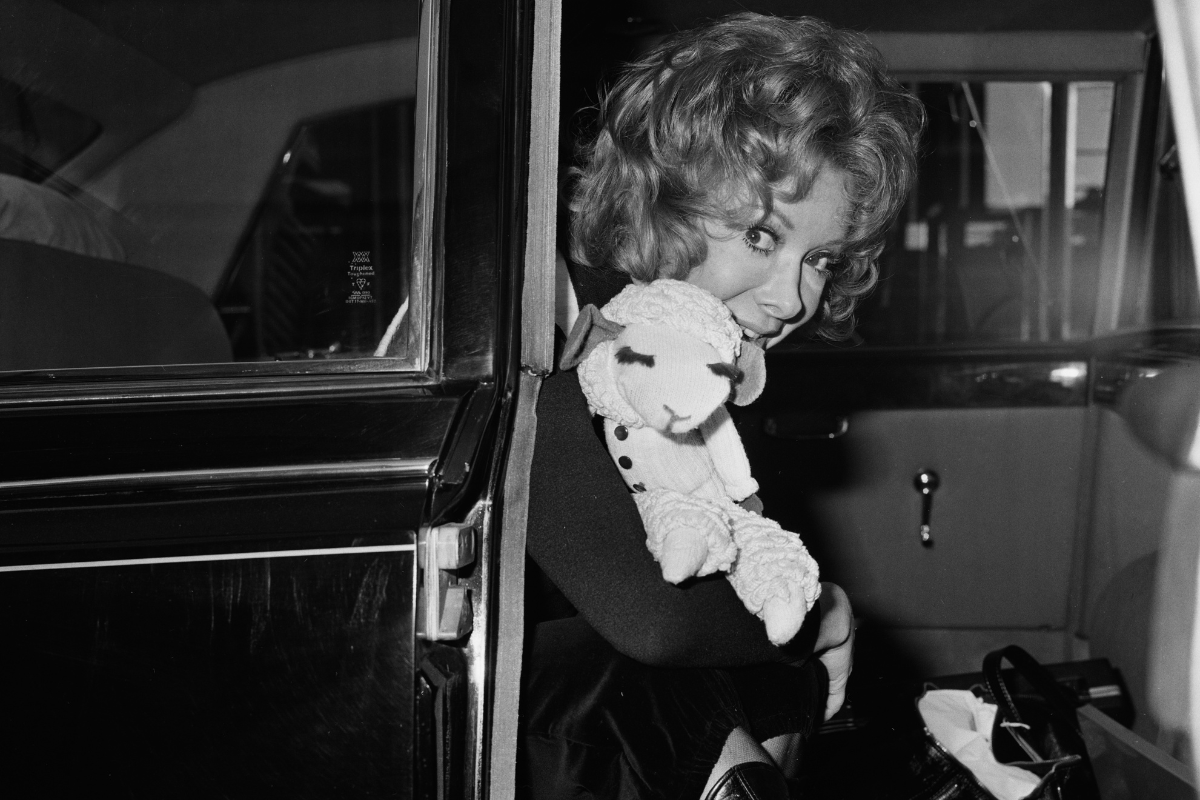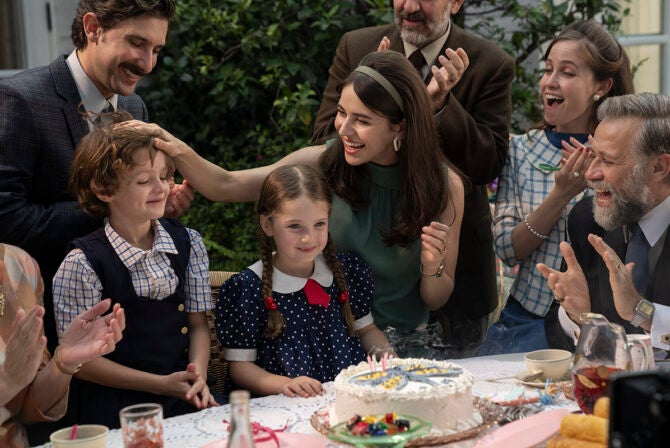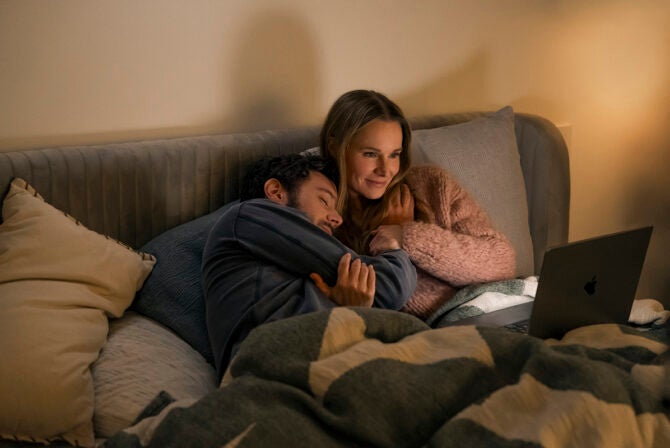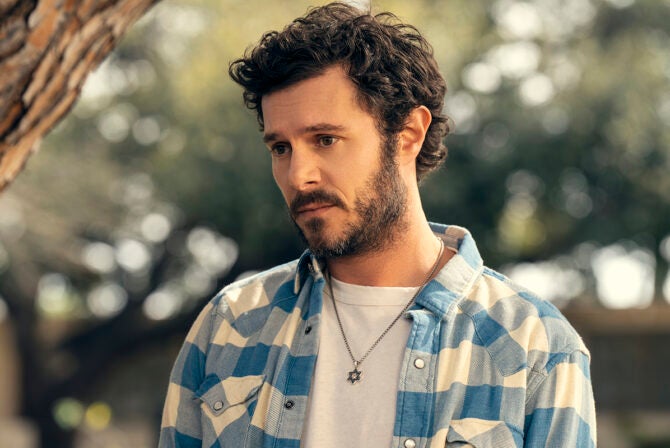As a longtime fan of Shari Lewis, I’ve been jonesing for a film about the Jewish ventriloquist and entertainer behind “Lamb Chop’s Play Along” for quite a while.
So when I heard about “Shari Lewis & Lamb Chop,” the documentary about Lewis from “Love, Gilda” director Lisa D’Apolito, I suspected I’d enjoy it. I expected it to be a nostalgic, joyful ode to a woman who has helped raise so many of us with her sweet voice and demeanor, and her unforgettable puppets: Charlie Horse, Hush Puppy and, more than any other, that sweet little 6-year-old lamb named Lamb Chop.
The documentary is indeed all those things, but it’s also surprisingly educational, spiritual, even transcendent. I felt like I was a child watching an episode of one of Lewis’ show, learning a lesson about how to be a person in the world.
Mallory Lewis, Shari Lewis’ daughter and the current voice of Lamb Chop, was the one who chose D’Apolito to direct the project, but had very little involvement in it, she told Kveller over Zoom.
“There’s literally nothing bad to say about my mom. So like, you know, talk to anybody. I don’t care,” she essentially told the director, giving her full access to the container in her yard full of her mother’s memorabilia. D’Apolito would return to her with treasures she had unearthed, and sometimes, with cuts of the documentary.
For Mallory, watching the final cut was not surprising, except for the last few minutes of the film, where you see Shari’s assistant’s footage from the final shoot of her last special, “The Charlie Horse Music Pizza,” filmed in 1998, the year she died of uterine cancer. It’s a beautifully meaningful moment in which you see Lewis say goodbye to all those who loved her, and to her only daughter, through the song “Hello, Goodbye,” as Mallory, who produced the show, looks at the camera. It is a moment that had me weeping.
“I’m the luckiest person in the world,” Mallory told Kveller. “People lose their parents. Everybody loses their parents, and you don’t get over that. The bad news is, the closer you are to your parent, the harder it is. But most people don’t have hundreds and hundreds of hours of footage of their parents doing what they loved best, and of them looking really pretty and well-lit.”
Shari Lewis is, in a sense, the Jewish Mary Poppins, except that Shari’s magic was very real. Instead of pulling magical objects out of a bag, Shari pulled entire beings out of her beautiful psyche and filled the lives of generations of kids with not only magic, but confidence, creativity, joy and the feeling of being seen. She was ahead of her time with that last objective. When she worked with her mother on the 1990s “Lamb Chop’s Play Along,” Mallory said Shari made sure to include a diverse cast. “You’re not going to change anybody by not showing them.”
It’s a legacy of magic that Shari inherited from her Jewish parents, in a very literal sense. Her father, Dr. Abraham “Abe” Hurwitz, was a professor at Yeshiva College and also New York City’s official magician. “His name was Peter Pan the Magic Man, and I’m Peter Pan’s daughter,” Lewis recounts in the documentary.
She grew up in the Bronx’s Parkchester neighborhood and had an idyllic childhood. Her cousin recalls her as “a diminutive Jewish girl, well-protected from the outside world within her school, within her temple, within her neighborhood.”
She also grew up in a world full of puppets and magic and riddles. Her father would perform magic shows in New York City parks and teach in after-school programs. He understood that magic taught young people “how to be social” and that it “gave you a sense of community,” Lewis recalls in the documentary. Instead of making Shari his cute little assistant, he let her help produce his shows.
Her mother, Ann, helped teach kids a different kind of magic as the person running the school’s music programs. And while Shari Lewis may have been dainty and beautiful, her mother, who loved reading to her daughter, never told her stories of princesses meekly waiting for their princes, hoping instead to teach her to be a “strong Jewish woman,” as her daughter describes her.
When she found a penchant for ventriloquism, her father would go with Shari to a park in the Bronx every Wednesday, where she would receive ventriloquism lessons from vaudeville star John W. Cooper, the “Black Napoleon of Ventriloquism.”
Despite being an atheist, Lewis was, according to Mallory, “very proud to be Jewish. She loved being Jewish.” And just like she wanted to make every type of child feel seen, she didn’t neglect Jewish children, producing multiple specials for Jewish holidays.
Jewish “Saturday Night Live” star Sarah Sherman, a die-hard Lamb Chop fan who owned countless lamb memorabilia and even has a Lamb Chop tattoo, felt deeply connected to the show, in part because of that.
“‘Lamb Chop’s Play Along’ is the only show I can think about that had a Hanukkah special and not just a Christmas story, which meant a lot to me,” Sherman says in the documentary. She also brings up the hilarious episode of “The Nanny” where Lamb Chop makes an appearance.
“My mom used to say that we all have many characters inside of us, she just gives them names and talks to them,” Mallory says in the film. Those characters and their stories — their magic — went on to be part of all the kids who watched her show.
“Shari Lewis & Lamb Chop” is now playing in select theaters.








